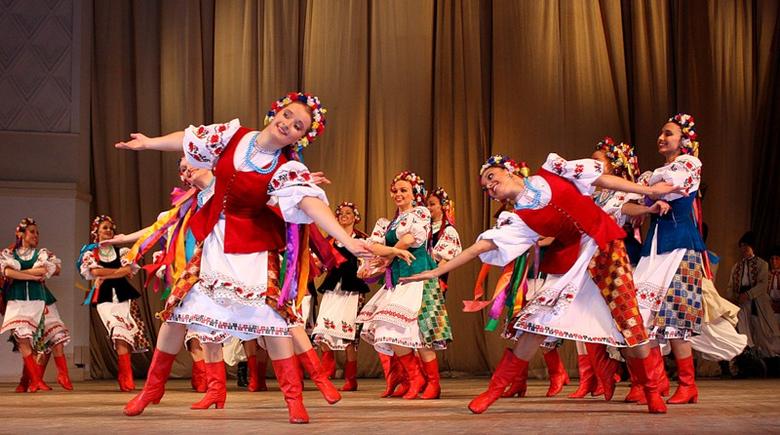
GAS: UKRAINE THREATENS EUROPE

While markets have been focused on the latest geopolitical flashpoint involving Russia and Ukraine – the downing of Malaysia Airlines flight MH17 – an unresolved dispute between the two countries over natural gas has continued to simmer in the background.
Gazprom , the Russian gas exporter, cut deliveries for domestic use by Ukraine in June after a bitter row over unpaid bills. Ukraine has, so far, continued to send gas to EU member states through the pipelines that cross its territory.
But analysts are concerned that could change if a deal is not reached between the two countries soon – an increasingly likely prospect as the conflict in eastern Ukraine takes new turns.
"Talks between both parties are at a stalemate even as problems over gas supplies have become more acute," says Ilya Zaslavsky, a Russia and Eurasia fellow at Chatham House, a think-tank.
The latest developments echo similar disputes in 2006 and 2009 when natural gas flows to Europe were reduced during freezing weather. Russia cut off deliveries passing through Ukrainian pipelines over claims the country was siphoning off gas, a charge it denied.
Russia meets almost a third of European gas demand, half of which comes through Ukraine. Industry watchers warn of supply disruptions to the rest of Europe and price spikes, reminiscent of the previous gas crises.
"Although demand is very low in Ukraine right now, storage facilities are about half empty," says Trevor Sikorski, head of natural gas, coal and carbon at London-based consultants Energy Aspects.
Shutting off all flows via Ukraine or Ukraine siphoning off deliveries meant for western Europe could worsen problems which are already brewing, particularly when the winter heating season gets under way.
"There are real supply problems building across Europe, which will be an issue for the winter as soon as people turn on the heat. A settlement is needed soon, as you don't want this kind of supply threat hanging over the market," adds Mr Sikorski.
Ukraine consumed about 45bn cubic metres of gas last year and is highly dependent on imports from Russia, particularly during the winter.
The EU's exposure to disruptions from Ukraine has improved since 2009, when about 80 per cent of the region's imports from Russia flowed through Ukraine. It is now down to about 50 per cent.
Western Europe can cope much better with disruptions thanks to access to supplies from Norway and Algeria, imports of liquefied natural gas, and relatively high storage levels. But countries like Slovakia, Hungary, Bulgaria, and Greece – those most dependent on Russian gas via Ukraine – are particularly vulnerable to shortages.
While Ukraine and Europe are devising contingency plans for this winter – including caps on consumption by households and businesses – implementation in such a short period will be challenging, say analysts.
Disagreement on price between Russia and Ukraine is the key sticking point.
Ukraine is campaigning for a price of $385 per 1,000 cubic metres in winter and just over $300 for the summer months. Moscow had granted Ukraine an even bigger discount when former president Viktor Yanukovich dropped plans to sign agreements on closer political and commercial ties with the EU. His decision sparked months of protests after which Mr Yanukovich was ousted, prompting Russia to reinstate the higher price of $485.
"Neither [the Russian or Ukrainian] government is showing any particular urgency in reaching a compromise. Both appear intent on having the other side capitulate, while also convincing the EU that the other party is to blame," say analysts at Eurasia Group.
There are many other sticking points which also need addressing, says Kyle Davis at law firm Berwin Leighton Paisner. These include "ownership and control of the Ukrainian gas transit network, the amount of money Ukraine receives as transit fees, repayment of Ukraine's unpaid arrears . . . Gazprom's use of gas storage facilities in Ukraine, Ukraine's relationship with EU countries and reputation as a reliable transit country, the list goes on."
Rising tension over the downing in eastern Ukraine of the Malaysian airliner further undermines the chances of Moscow and Kiev reaching a deal on gas supply and prices this year. The European Commission had brokered talks, but the new one will not come into place until November.
Meanwhile, concerns have been raised about proposed EU sanctions on Russia. Given Gazprom provides 26 per cent of the gas consumed in Europe, energy providers are unlikely to be targeted, analysts say.
A lack of urgency in gas markets has also hindered prospects of a deal, says Thierry Bros at Société Générale. European gas demand has fallen from more than 510bcm in 2010 to nearly 410bcm this year, according to the bank, which does not expect demand to reach 450bcm over the next four years.
"The market is too relaxed right now, even though we could face a crisis," he says. "People are only looking at current low demand and high storage levels in Europe, at 77 per cent capacity, which is why prices are low." Front-month benchmark gas prices in Europe have fallen 45 per cent this year.
Mr Bros believes Ukraine needs about 18bcm in storage by the beginning of winter to guarantee steady flows into Europe. "We are now at 14.7bcm [46 per cent of capacity]. Maybe we will not reach 17bcm."
The likelihood of disruption could send prices up 12 per cent this winter from current levels, he adds.
ft.com





